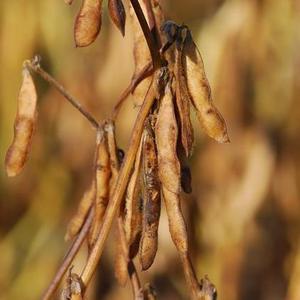Biodiesel market in EU opens for US soybeans

January 29, 2019
BY The American Soybean Association
Conservation practices required for U.S. soybean production meet EU sustainability standards, and biodiesel produced from documented soybeans can now be used in the EU, the European Commission has formally announced.
The EU requires biofuels to meet a set of sustainability criteria outlined in its Renewable Energy Directive (RED). The U.S. soy industry has its own sustainability guideline, the Soybean Sustainability Assurance Protocol that, with this announcement, the EU acknowledges meets its rigorous RED requirements.
“U.S. farmers have long prided themselves on adopting newer and better methods for producing high-quality soybeans that are grown responsibly and sustainably,” said Davie Stephens, a soybean grower from Clinton, Kentucky, and American Soybean Association president. “The SSAP sets a high standard that demonstrates that commitment, and we are pleased that the EU Commission has recognized our efforts by opening the door for SSAP-certified soybeans to be used in EU biodiesel.”
Advertisement
Advertisement
The U.S. is the lead supplier of soybeans to the EU, and while this announcement applies only to soybeans exported for biodiesel, ASA sees it as a positive step for enhancing its EU market and validating the quality of the SSAP sustainability initiative. The EU’s decision will remain in place through at least July 1, 2021.
Advertisement
Advertisement
Related Stories
The USDA significantly increased its estimate for 2025-’26 soybean oil use in biofuel production in its latest World Agricultural Supply and Demand Estimates report, released July 11. The outlook for soybean production was revised down.
U.S. fuel ethanol capacity fell slightly in April, while biodiesel and renewable diesel capacity held steady, according to data released by the U.S. EIA on June 30. Feedstock consumption was down when compared to the previous month.
The U.S. EPA on July 8 hosted virtual public hearing to gather input on the agency’s recently released proposed rule to set 2026 and 2027 RFS RVOs. Members of the biofuel industry were among those to offer testimony during the event.
The USDA’s Risk Management Agency is implementing multiple changes to the Camelina pilot insurance program for the 2026 and succeeding crop years. The changes will expand coverage options and provide greater flexibility for producers.
The USDA’s National Agricultural Statistics Service on June 30 released its annual Acreage report, estimating that 83.4 million acres of soybeans have been planted in the U.S. this year, down 4% when compared to 2024.
Upcoming Events










